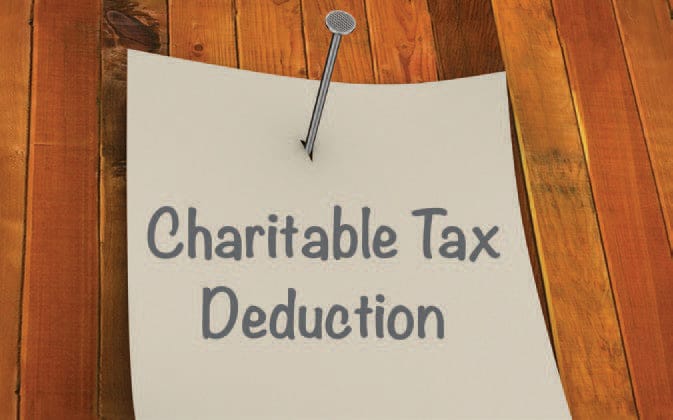Is disability income taxable?

Many Americans receive disability income. If you’re one of them or know someone who is, you may wonder whether it’s taxable. As is often the case with tax questions, the answer is “it depends.”
Key factor
The key factor is who paid it. If the income is paid directly to you by your employer, it’s taxable to you as ordinary salary would be. Taxable benefits are also subject to federal income tax withholding — though, depending on the disability plan, they sometimes aren’t subject to Social Security tax.
Frequently, the payments aren’t made by an employer but by an insurer under a policy providing disability coverage or under an arrangement having the effect of accident or health insurance. In such cases, the tax treatment depends on who paid for the coverage. If your employer paid for it, the income is taxed to you, as if paid directly to you by the employer. But if you paid for the policy, the payments you receive under it aren’t taxable.
Even if your employer arranges for the coverage (in other words, it’s a policy made available to you at work), the benefits aren’t taxed to you if you pay the premiums. For these purposes, if the premiums are paid by the employer but the amount paid is included as part of your taxable income from work, the premiums are treated as paid by you.
Two examples
Let’s say your salary is $1,000 a week ($52,000 a year). Under a disability insurance arrangement made available to you by your employer, $10 a week ($520 for the year) is paid on your behalf by your employer to an insurance company. You include $52,520 in income as your wages for the year: the $52,000 paid to you plus the $520 in disability insurance premiums. In this case, the insurance is treated as paid for by you. If you become disabled and receive benefits, they aren’t taxable income to you.
Now, let’s look at an example with the same facts as above. Except in this case, you include only $52,000 in income as your wages for the year because the amount paid for the insurance coverage qualifies as excludable under the rules for employer-provided health and accident plans. In this case, the insurance is treated as paid for by your employer. If you become disabled and receive benefits, they are taxable income to you.
Note: There are special rules in the case of a permanent loss (or loss of the use) of a part or function of the body, or a permanent disfigurement.
Any questions?
This discussion doesn’t cover the tax treatment of Social Security disability benefits, which may be taxed under different rules. Contact us to discuss this further or if you have questions about regular disability income.
How much coverage is needed?
In deciding how much disability coverage you need to protect yourself and your family, take tax treatment into consideration. If you’re buying the policy, you need to replace your after-tax, “take-home” income because your benefits won’t be taxed. On the other hand, if your employer pays for the benefit, you’ll lose a percentage to taxes. If your current coverage is insufficient, you may wish to supplement an employer benefit with a policy you take out personally.
How to secure a business bad debt deduction

Is your business having trouble collecting payments from clients or vendors? Years after the onset of the pandemic, some operations continue to feel the impact on business activity. It may be small solace, but at least you might be able to salvage a bad debt deduction on your tax return.
Caution: This tax treatment isn’t automatic. Essentially, you must be able to show that the debt is worthless. That means you may have to ramp up your collection efforts. Fortunately, that could help your cash flow. If, however, it turns out that the debts are uncollectible, you may be able to secure a deduction. If you hope to take the deduction on your 2023 tax return, you’ll have to get busy.
First, a cash-basis taxpayer may claim a business bad debt only if the amount that’s owed was previously included in gross income. Second, as explained, a business must establish that the debt is legitimate and can’t be recovered from the debtor. To this end, you must make a “reasonable” effort to collect the amount that’s due.
This doesn’t necessarily mean you have to file a lawsuit against the debtor. But you can’t just make a single phone call either. Give it your best shot.
Often, the specific charge-off method (also called the direct write-off method) is used for writing off bad debts. In this case, you can deduct business bad debts that become either partially or totally worthless during the year.
For tax purposes, partially and totally worthless are defined as follows:
Partially worthless. The deduction is limited to the amount charged off on your books. You don’t have to charge off and deduct your partially worthless debts annually, so you can postpone this to a later year. However, you can’t deduct any part of a debt after the year it becomes totally worthless.
Totally worthless. If a debt becomes totally worthless in the current tax year, you can deduct the entire amount (less any amount deducted in an earlier tax year when the debt was partially worthless).
Note that you don’t have to make an actual charge-off on your books to claim a bad debt deduction for a totally worthless debt. But if you don’t record a charge-off and the IRS later rules the debt is only partially worthless, you won’t be allowed a deduction for the debt in that tax year. Reason: A deduction of a partially worthless bad debt is limited to the amount actually charged off.
If you haven’t started your collection efforts yet, time is short if you hope to claim a business bad debt deduction for 2023, so spring into action. For instance, you might start collection efforts through phone and email contacts. If that doesn’t work, you may want to follow up with a series of letters — or even hire a collection agency. Finally, if all else fails, ask your tax advisor about the prospects of claiming a business bad debt deduction on your 2023 return.
One-time thing: IRA to HSA transfers
Did you know that you can transfer funds directly from your IRA to a Health Savings Account (HSA) without taxes or penalties? According to the IRS, you’re permitted to make one such “qualified HSA funding distribution” during your lifetime.
Typically, if you have an IRA and an HSA, it’s a good idea to contribute as much as possible to both to maximize their tax benefits. But if you’re hit with high medical expenses and have an insufficient balance in your HSA, transferring funds from your IRA may be a solution.
Calling in the cavalry
An HSA is a savings account that can be used to pay qualified medical expenses with pre-tax dollars. It’s generally available to individuals with eligible high-deductible health plans. Currently, the annual limit on tax-deductible contributions to an HSA is $3,850 for individuals with self-only coverage and $7,750 for individuals with family coverage. If you’re 55 or older, the limits are $4,850 and $8,750, respectively. Those same limits apply to an IRA-to-HSA transfer, reduced by any contributions already made to the HSA during the year.
Here’s an example illustrating the potential benefits of a qualified HSA funding distribution from an IRA: Joe is 58 years old, with a self-only, high-deductible health plan. In 2023, he needs surgery for which he incurs $5,000 in out-of-pocket costs. Joe is strapped for cash and only has $500 left in his HSA, but he does have a $50,000 balance in his traditional IRA. Joe may move up to $4,850 from his IRA to his HSA tax- and penalty-free.
Considering other factors
If you decide to transfer funds from your IRA to your HSA, keep in mind that the distribution must be made directly by the IRA trustee to the HSA trustee, and the transfer counts toward your maximum annual HSA contribution.
Also, funds transferred to the HSA in this case aren’t tax deductible. But, because the IRA distribution is excluded from your income, the effect is the same (at least for federal tax purposes).
Exploring the opportunity
IRA-to-HSA transfers are literally a once-in-a-lifetime opportunity, but that doesn’t mean they’re the right move for everyone. If you’re interested, our firm can help you explore taking this step in the context of your tax and financial circumstances.
Follow IRS Rules to Nail Down a Charitable Tax Deduction

Donating cash and property to your favorite charity is beneficial to the charity, but also to you in the form of a tax deduction. However, to be deductible your donation must meet certain IRS criteria.
First, the charity you’re donating to must be a qualified charitable organization, with tax-exempt status. A tool on the IRS website — the Exempt Organizations Select Check — allows users to search for a specific tax-exempt organization, check its federal tax status and see information returns the charity may have filed that are up for public review.
To be deductible in a given year, contributions must be actually paid, not simply pledged. So, if you pledged $5,000 but only paid $1,500 by the end of the year, you can only deduct the $1,500 on that year’s tax return.
If you donate property and receive something in return, you need to know the fair market value (FMV) of the item donated and the item received. Suppose you donate a flat screen TV to your child’s school, and in return receive event tickets. You must deduct the FMV of the tickets from the FMV of the TV to arrive at your tax deduction.
Substantiation rules also apply when giving cash or property to charity, and they vary based on the type and amount of the donation. For example, some donated property may require you to obtain a professional appraisal of value. Before you implement a course of action, consult your tax advisor.
Tax Calendar
November 15 – Calendar-year tax-exempt organizations that obtained an exemption should file their 2022 returns. In addition:
If the monthly deposit rule applies, employers must deposit the tax for payments in October for Social Security, Medicare, withheld income tax and nonpayroll withholding.
December 11 – Employees must report November tip income of $20 or more to employers (Form 4070).
December 15 – Calendar-year corporations must pay fourth-quarter 2023 estimated tax payments. In addition:
- If the monthly deposit rule applies, employers must deposit the tax for payments in November for Social Security, Medicare, withheld income tax and nonpayroll withholding.
About Batley CPA
Batley CPA, LLC is a full-service CPA firm providing tax, accounting, payroll and advisory services to businesses and individuals throughout Green Bay and the Fox Cities. Batley CPA regularly provides clients with best practices and strategies to maximize cash flow, profit, reduce taxes, manage costs and risk, and bring meaning to financial and operational data. The company has offices in Appleton, Neenah and Green Bay.


